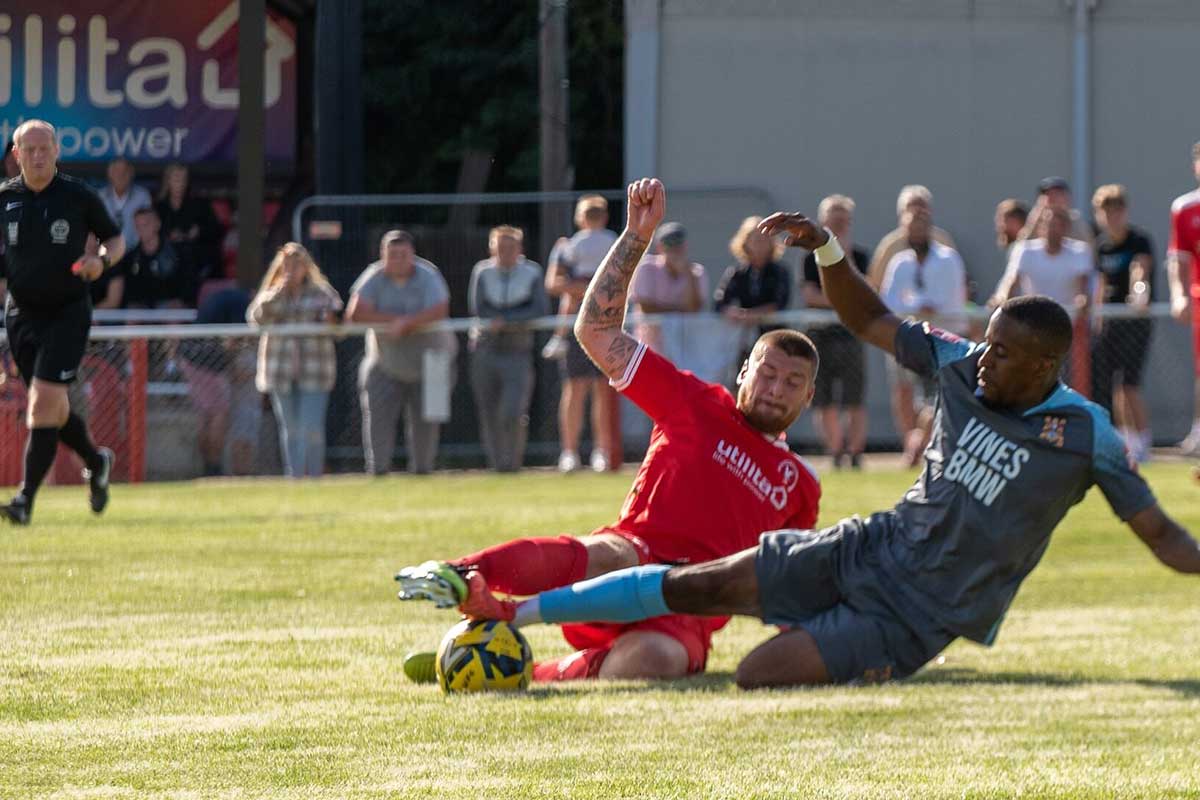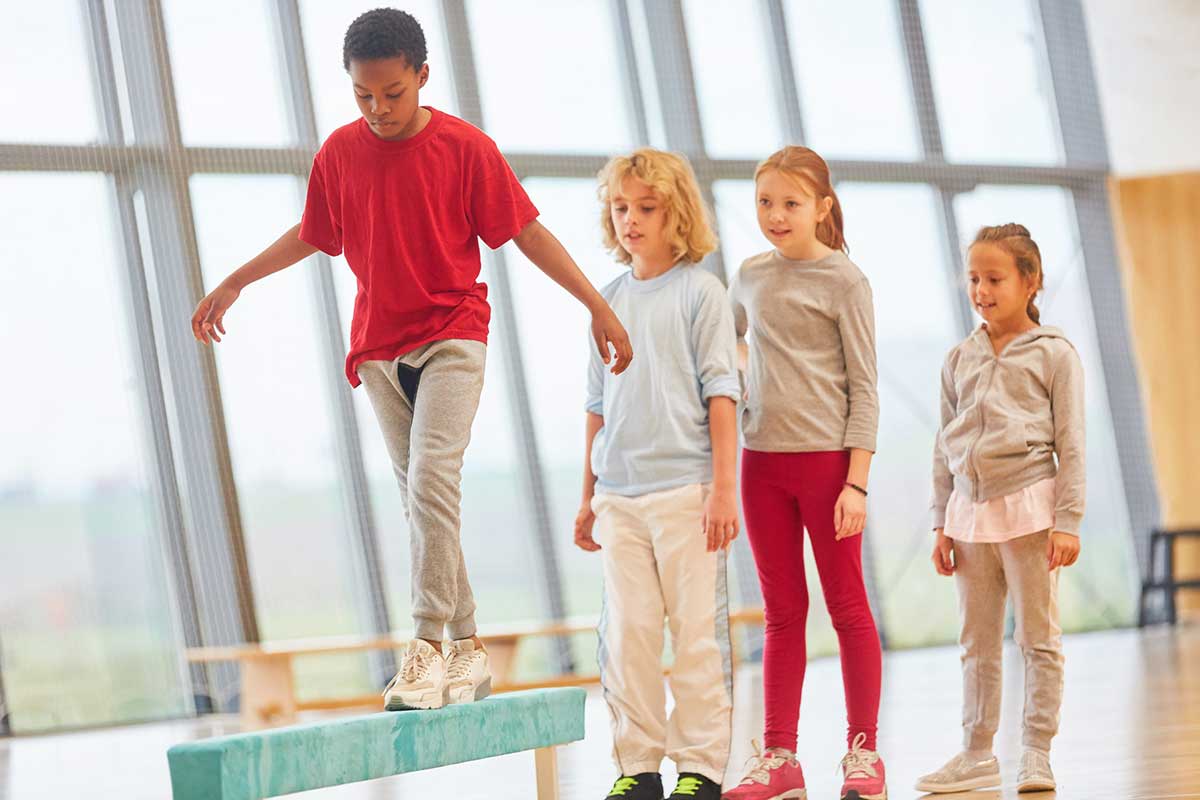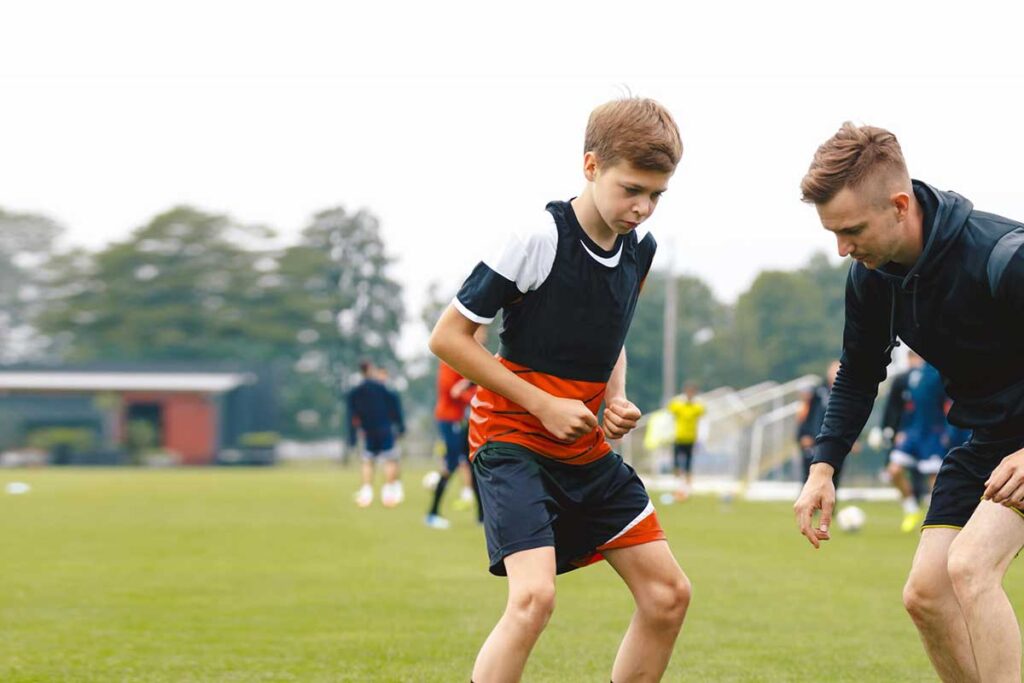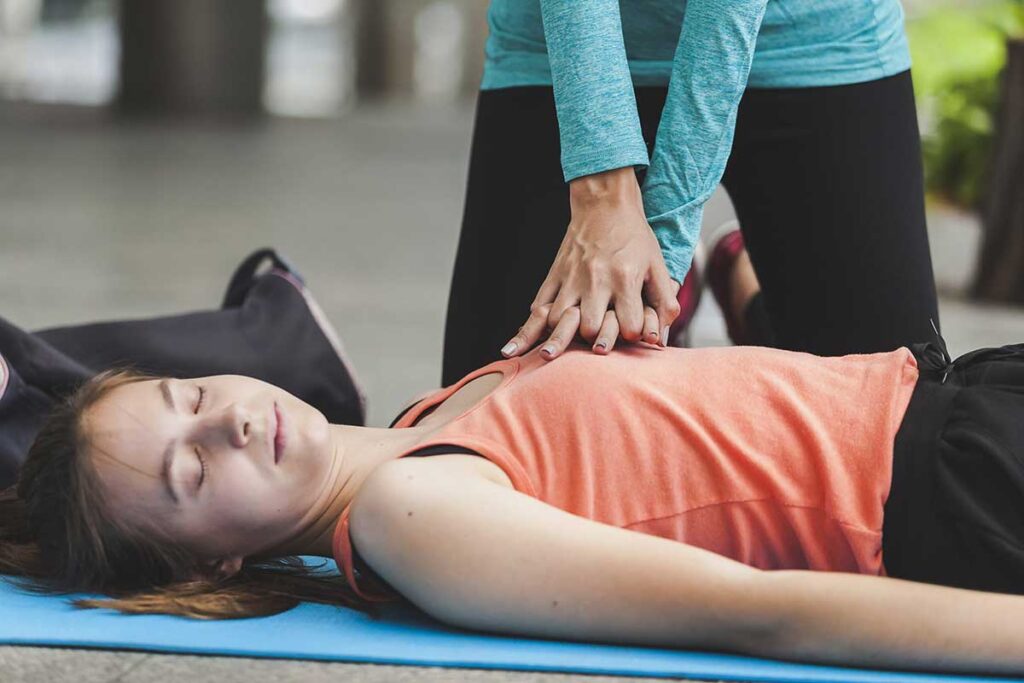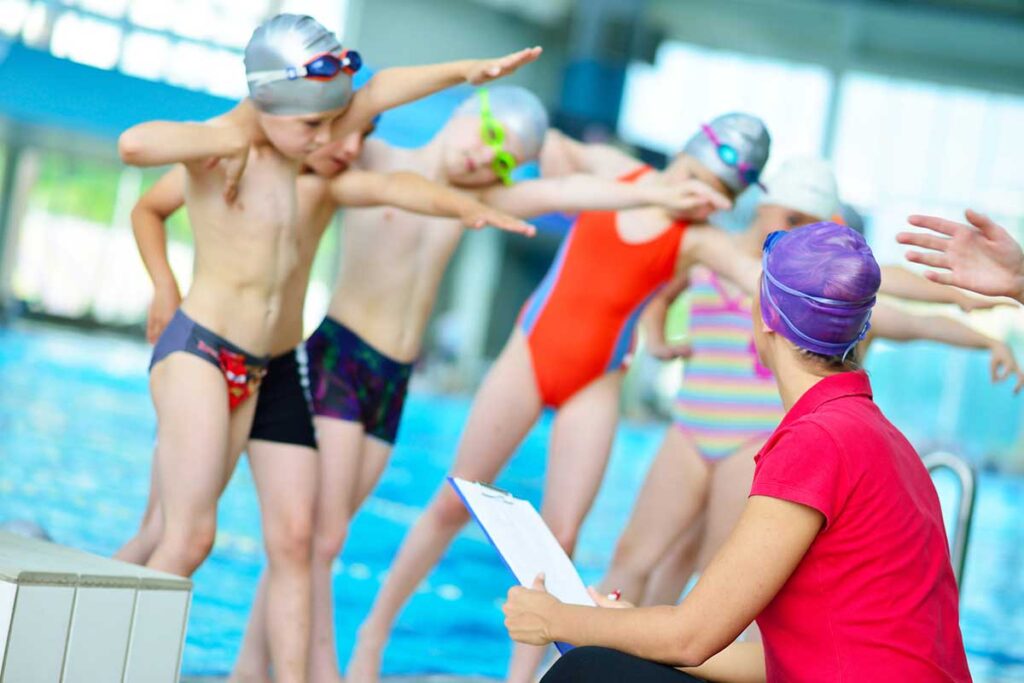What is The Greater Game?
The Greater Game is an initiative developed by England Football, which hopes to, “. . . use the power of football to help improve the health and wellbeing of young people across the nation.”
This programme puts its values at the core and is purposely developed to get children between the ages of 12-16 to make at least one healthy action a week.
What inspired The Greater Game?
According to England Football, less than half the children between the ages of 10-16 exercise regularly for an hour a day and one in five leaves primary school as overweight and classified as obese.
The source of entertainment for many kids is their phone or tablet. This means if they are not at school, they’re more like to be sitting or lying down, staring at a screen rather than outside kicking a ball about or going on a walk with their friends. The knock-on effect of less physical activity isn’t just weight gain though, it’s having a huge impact on the mental health of children across the nation.
Nowadays, social media can make kids feel left out. They might see friends at parties they weren’t invited to or miss talking to friends in person. Building relationships helps children grow emotionally and socially. That’s why team sports like football are great for staying active, having fun, making friends, and supporting young minds.
The 5 key pillars
Football England’s aim is to use the power of football to improve the health and well-being of young people across the nation. To do this, it has identified five pillars that underpin the whole concept of the programme.
Here’s a list of the pillars and a brief description of why they’re important to the programme. Alternatively, watch The Greater Game video here.
1. Health and wellbeing
Educating young people to be conscious about their health and wellbeing means helping them to see the bigger picture not just focusing on one aspect. Wellbeing comes from consciously making choices that are going to make them happier, such as having strong friendships, feeling physically fit and well, doing things they love and being part of a community.
2. Moving well
You might be surprised to hear that the World Health Organisation recommends that children and adolescents spend an hour a day being physically active.
That sounds like a lot, but small adjustments can make a big difference. Maybe they could walk or cycle to school, go for a walk with a friend or a group of friends, or join an activity club at lunchtime or after school. There are lots of options but not always the motivation.
By educating young people about the benefits of moving more, you give them the incentive to do things differently. If it’s normal from a young age, it’s a habit that will last a lifetime and reap many physical and mental rewards.
3. Thinking well
Getting young people to understand that their mental health can be affected positively by doing things that make them feel content or fulfilled. Playing sports, listening to music, relaxing watching a movie can all be great things to help you switch off and let your mind rest.
Also trying to enjoy the present rather than always worrying about the future is a great mindset for young people to adopt. But by letting themselves live in the moment, kids can give themselves a break from the things that can make them anxious.
4. Eating well
Encouraging young people to have a balanced diet, doesn’t just mean excluding treats and fun foods. It’s all about eating foods that give you energy and make you feel good, so the odd packet of crisps or sugary sweets is fine.
Often dietary habits start at home and are heavily influenced by parents. This means that parents also need to be encouraged to offer their kids variety from a young age, ensuring fruit and vegetables are a normal part of their diet. That’ll help build habits that’ll last a lifetime.
5. Sleeping well
Twelve to sixteen-year-olds need between eight and ten hours of sleep per night, but many get significantly less than that because they get absorbed by social media on their phones. It’s natural to want to connect with their friends, but too much mental stimulation before bed can also cause disrupted sleep which has a knock-on effect on mental health.
Football England advocates for young people to strive for a consistent sleep pattern to help with mental wellbeing and physical robustness.
The Initiatives
Football England’s aim is to help young people live healthier lives. They know this will take a combined effort from families and institutions as well as the children themselves, but they’re passionate about promoting a movement that’ll transform physical and mental health amongst the younger generation.
To make this happen they’ve come up with a range of initiatives to promote their vision.
Creating a grassroots programme
By working alongside Nuffield Health, Football England has developed resources that’ll provide tools and support for their pillars of Move, Think, Eat and Sleep. Parents, coaches, guardians and young people will be equipped to tackle the pillars with relevant, helpful ideas and research from academics at the Institute for Sport and Physical Activity Research at the University of Bedfordshire and researchers from the Centre for Behaviour Change at University College London. By engaging with the relevant audience, they’ve created materials that address behavioural concerns with intervention strategies created to promote long-term, lasting change.
The Pilot
The pilot went live in April 2023 and was delivered to selected clubs in five county FA’s. Over 100 coaches and 2,000 young people experienced the pilot which took the form of educational workshops where attendees were given practical tips and techniques that could be applied at home and on the pitch. By encouraging everyone involved to take ownership of the things they can change, they hope the participants will be inspired to adopt lifelong, healthy behaviours.
All the data from the pilot will be used to refine the final offering before the national rollout in early 2024.
Mobilising the collective
The Greater Game see football as the perfect vehicle to help promote the health and happiness of young people. By utilising the nutritional and fitness expertise of their partners Nuffield Health and M&S Food, they hope to encourage small steps that will eventually become huge leaps towards a healthier future. That first small step is to “…inspire at least one healthier action per week.” This not only seems manageable but also easy to exceed.
By starting with an achievable and realistic target, The Greater Game has the potential to really make a difference in the health and happiness of youngsters across England.
Although the initiative is currently still in its infancy, we can hope to see the emergence of a detailed, long-term strategy in the not-too-distant future. If their research and implementation strategies are as effective as they hope, then there’s a genuine chance that our young people will emerge from their youth, fit, resilient and ready to face their future.
_
Interested in finding out more about how LoveAdmin’s membership management software can help Football Clubs and Football Academies? Get a demo today.


